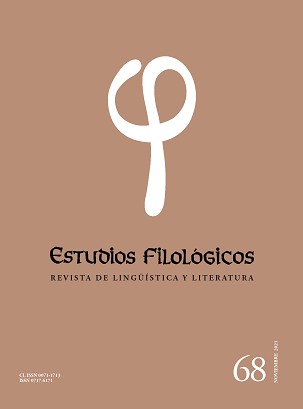La identidad sitiada en los espacios del exilio chileno en la República Democrática Alemana: Morir en Berlín y Las dos orillas del Elba
Contenido principal del artículo
Resumen
La consistencia del relato autodefinitorio depende de la relación con los espacios pues ellos aseguran pertenencia, seguridad y apego, postulado que constituye el impulso para el estudio de las novelas sobre la diáspora chilena en la RDA, Morir en Berlín de Carlos Cerda, y Las dos orillas del Elba de Juan Forch. Analizados de acuerdo a las reflexiones de Emmanuel Lévinas y los aportes de la Psicología ambiental, los textos revelan la historia de un grupo de chilenos que sin poder entrar a la patria tampoco pudo salir del país de acogida, cercado por muros ideológicos y perimetrales. La experiencia cotidiana de los espacios ajenos, inconfortables y precarios provocó una dolorosa fractura identitaria que significó la diferencia entre ser y no ser, entre libertad y esclavitud, entre vivir y rendirse.

